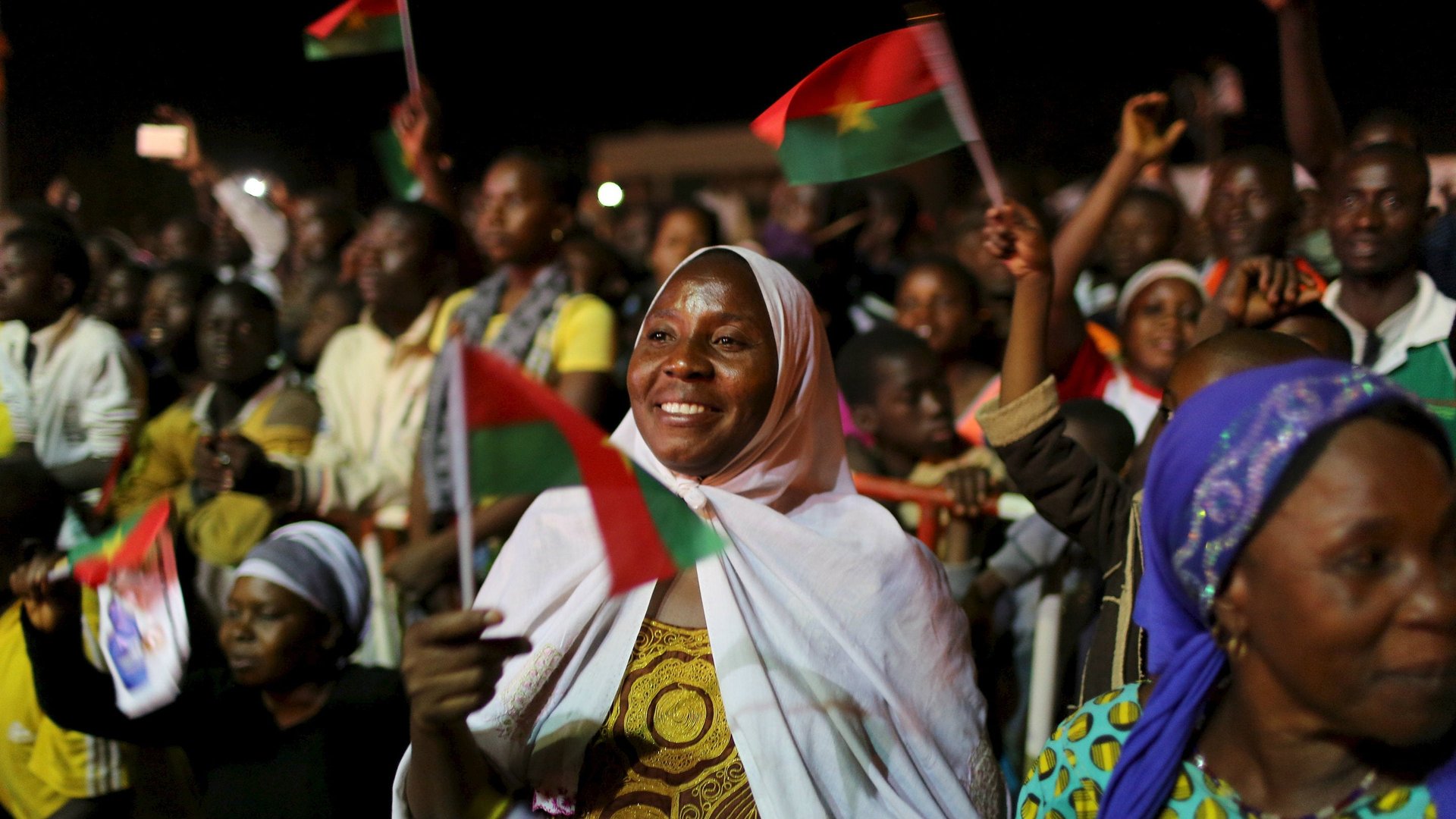Burkina Faso elects its first new president in almost 30 years
Former prime minister Roch Marc Christian Kaboré has been elected the next president of Burkina Faso after he emerged the clear victor in the presidential and parliamentary elections held on Sunday. He won with 53.5% of the vote, defeating his closest challenger, former finance minister Zephirin Diabre, who managed to attract the support of 21.6% of the electorate. The outright majority secured by Kabore means that no run-off will be necessary.


Former prime minister Roch Marc Christian Kaboré has been elected the next president of Burkina Faso after he emerged the clear victor in the presidential and parliamentary elections held on Sunday. He won with 53.5% of the vote, defeating his closest challenger, former finance minister Zephirin Diabre, who managed to attract the support of 21.6% of the electorate. The outright majority secured by Kabore means that no run-off will be necessary.
This is the first transfer of power in the west African nation in almost three decades. The country’s long-time president Blaise Compaoré was ousted from office last year by a popular uprising precipitated by his attempt at changing the constitution so he could run for another term.
His departure ushered in a transitional administration led by the former foreign minister and UN diplomat Michel Kafando with a mandate to govern until new elections could take place. Originally scheduled to happen in October, the vote had to be delayed following a coup engineered by Compaoré’s presidential guard. The military, however, managed to thwart the overthrow attempt a week later and restored the interim government .
The new president-elect Kaboré is not a complete break from the past after serving in various cabinet positions in Compaoré’s governments and had been viewed as his chosen successor. A former banker, he was prime minister between 1994 to 1996 before getting appointed as special advisor to the president in 1996. But he split with his former boss after he initiated steps to stay in power longer. Kaboré reportedly enjoys the support of the private sector, particularly the country’s business elite.
A landlocked country, Burkina Faso is one of the smaller economies in the region highly dependent on mining and commodities, particularly gold. Despite political uncertainty and the global economic slowdown, the economy is still expected to grow by 5% in 2015, a jump from the 4.5% GDP growth seen a year before, according to data from the World Bank.
Upon being declared the victor, Kaboré called for unity after what has been a tumultuous period in the country’s history. ”We should work together to heal the wounds and succeed in truth and justice, national reconciliation and consolidate social cohesion between all Burkinabé,” he said.